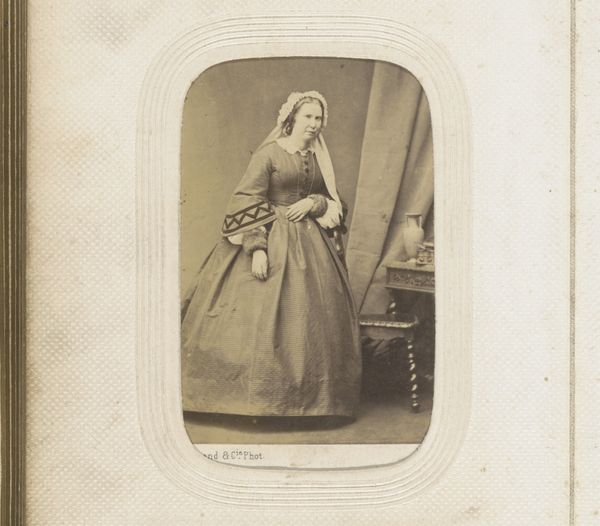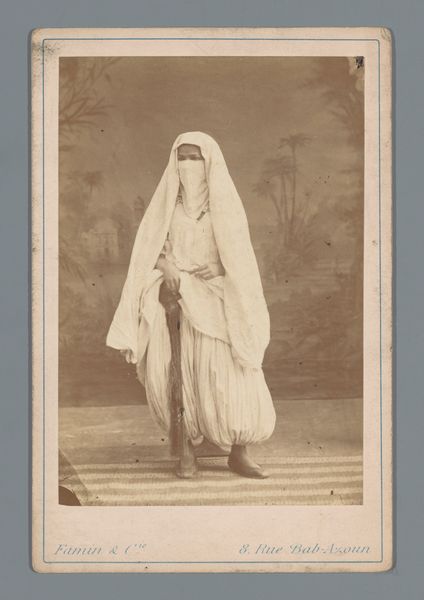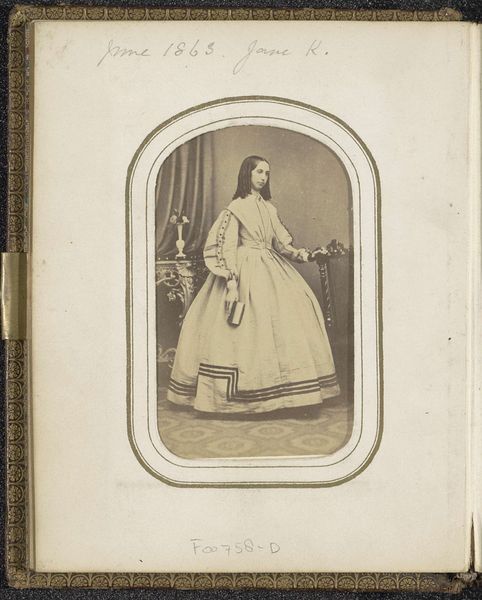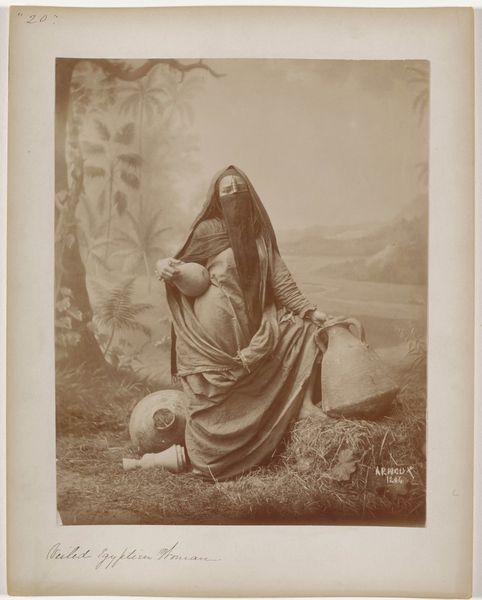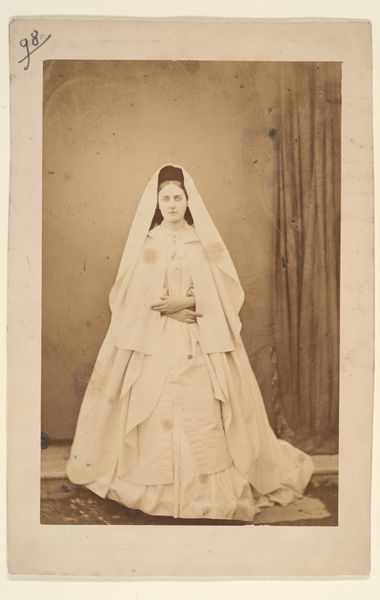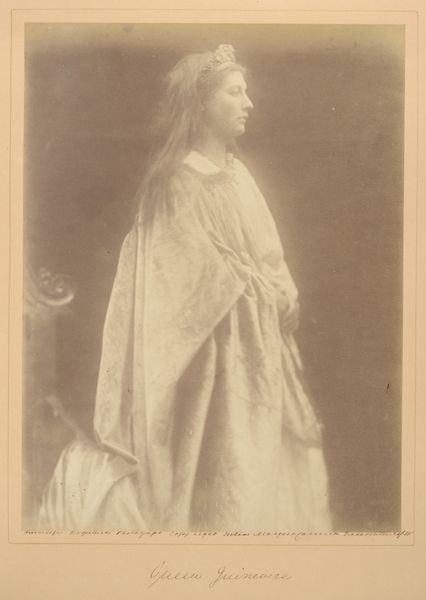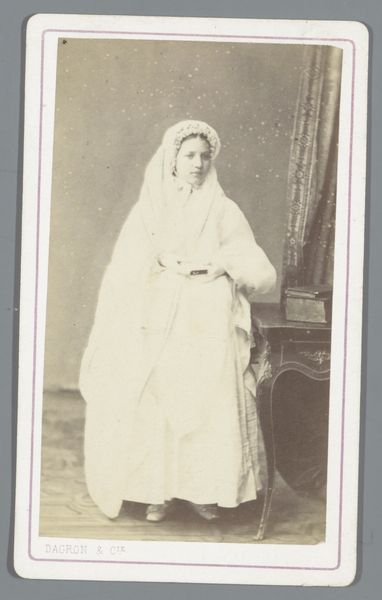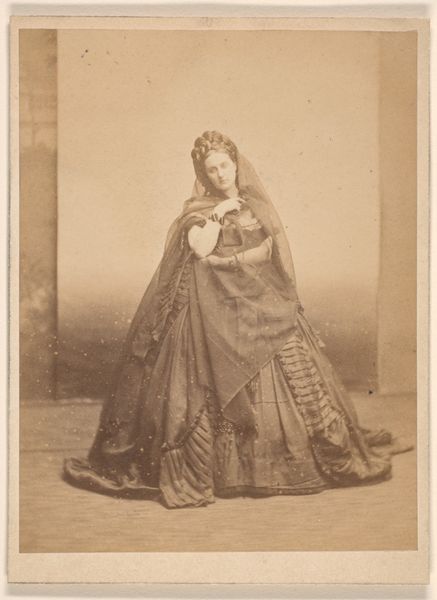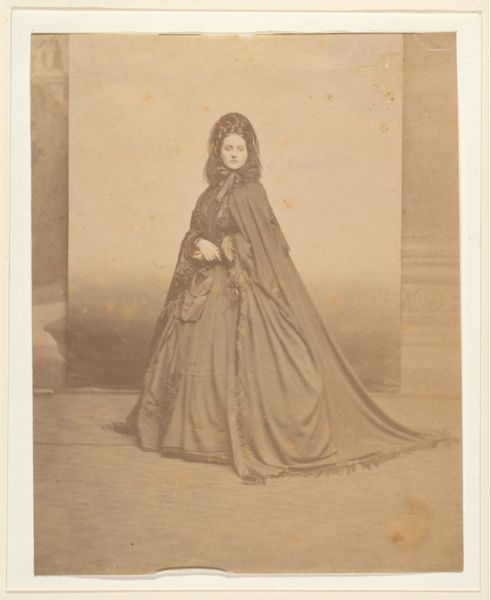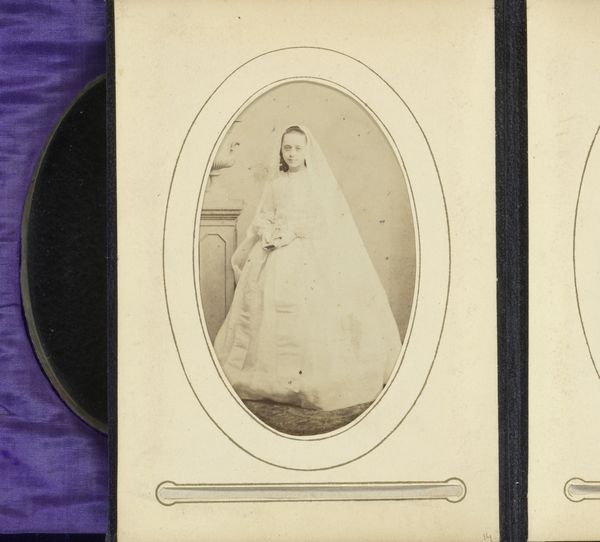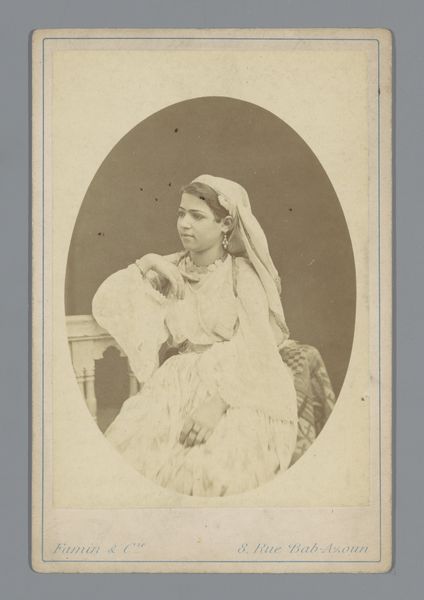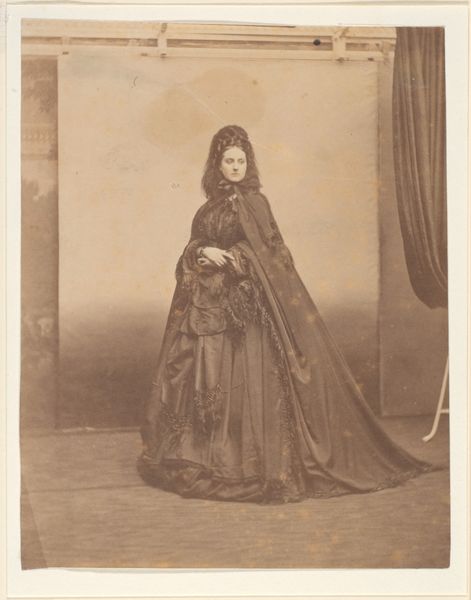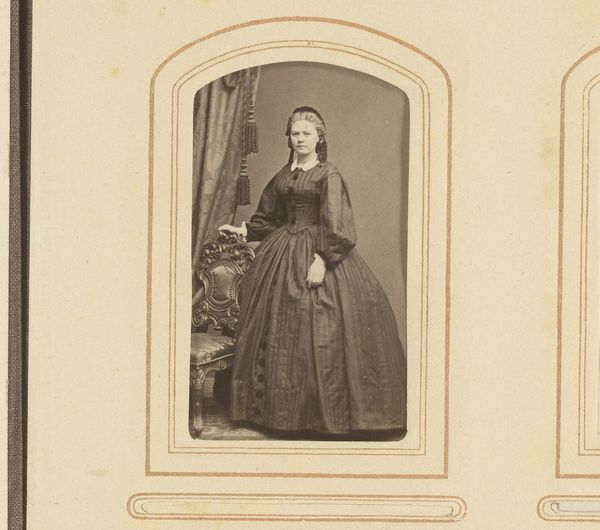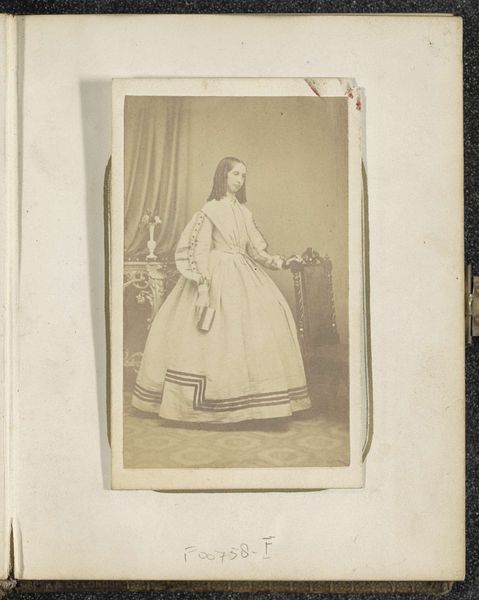
Scène uit het Passiespel in Oberammergau in 1870, afgebeeld Franziska Flunger in de rol van Maria 1870
0:00
0:00
Dimensions: height 83 mm, width 52 mm
Copyright: Rijks Museum: Open Domain
This photograph by F. Steigenberger captures Franziska Flunger as Maria in the Oberammergau Passion Play of 1870. The dark cloak, the folded hands, and the headdress are all visual signals of her purity and maternal sorrow. These motifs echo across centuries. Consider Giotto’s weeping Madonnas, their faces contorted in grief, or the countless veiled figures in Renaissance paintings embodying both mourning and reverence. The headdress in particular, while simple here, carries echoes of ancient Roman matrons, a symbol of virtue adapted to a new spiritual context. This gesture of covering the head has traversed time, signifying humility, piety, or even grief. It evolves from a simple act of modesty to a powerful symbol loaded with cultural weight. Like a dream, it resurfaces through history and the collective unconscious. Here, in Flunger's portrayal, we sense not just a performance, but a deep engagement with the archetype of the suffering mother, a figure whose pain resonates through history, engaging us on a deeply human level. The symbols have a non-linear journey, constantly evolving and resurfacing across time.
Comments
No comments
Be the first to comment and join the conversation on the ultimate creative platform.
